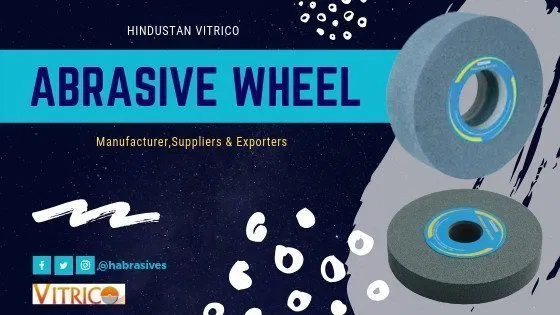Mastering Precision: Understanding the Dynamics of Grinding Wheels
In the domain of precision machining, the grinding wheel reigns supreme as a fundamental tool, embodying accuracy, efficiency, and finesse in material refinement processes.
The Essence of Grinding Wheels
Grinding wheels represent the cornerstone of precision machining. These wheels, composed of abrasive grains bonded together, serve as vital components in material removal, shaping, and surface finishing operations.
Composition and Varieties
Grinding wheels encompass diverse compositions catering to various applications. Abrasive materials like aluminum oxide, silicon carbide, and diamond grains form the core constituents, each tailored to specific materials and machining requirements.
Applications in Precision Machining
The versatility of grinding wheels makes them indispensable in numerous precision machining industries. Their applications range from heavy material removal to intricate surface detailing, ensuring precision and consistency in material refinement.
Precision in Action
Imagine a grinding wheel in motion: its abrasive grains delicately carving material from a workpiece with controlled precision. Beyond mere material removal, this process embodies the pursuit of achieving impeccable surface quality and dimensional accuracy.
Factors Influencing Performance
The efficacy of grinding wheels hinges on various factors. Grit size, bonding materials, wheel structure, and the material being worked upon significantly impact their effectiveness. Selecting the right wheel tailored to specific applications ensures optimal performance and durability.
Technological Advancements
Constant advancements in materials science refine the properties of grinding wheels. Innovations in bonding agents, wheel designs, and abrasives result in wheels with enhanced durability, precision, and efficiency, aligning with the evolving demands of modern machining processes.
Selecting the Ideal Grinding Wheel
Careful selection of the appropriate grinding wheel is pivotal in precision machining. Engineers and craftsmen meticulously assess factors like material hardness, desired finish, and material removal rate. Scrutinizing the wheel’s properties ensures tailored performance for specific applications.
Efficiency and Sustainability Practices
Efficient maintenance practices are crucial for sustained performance. Regular inspections, proper dressing, and efficient coolant application optimize wheel longevity, ensuring consistent, high-quality results. Emphasis on eco-friendly materials and recycling initiatives promote sustainability.
Charting the Path Forward
The trajectory of grinding wheels seems promising. Integration of smart technologies for real-time monitoring and predictive maintenance aims to enhance operational efficiency and safety in machining processes. These advancements aim to refine precision and adaptability further.
In Conclusion
Grinding wheels serve as pivotal tools in precision machining, sculpting materials with unparalleled accuracy. As technology advances, these versatile tools will continue to anchor precision and efficiency in industrial processes.
Embracing Evolution
As industries evolve, the evolution of grinding wheels remains pivotal. Their adaptability and precision will persist, ensuring materials are refined with impeccable accuracy and finesse.







